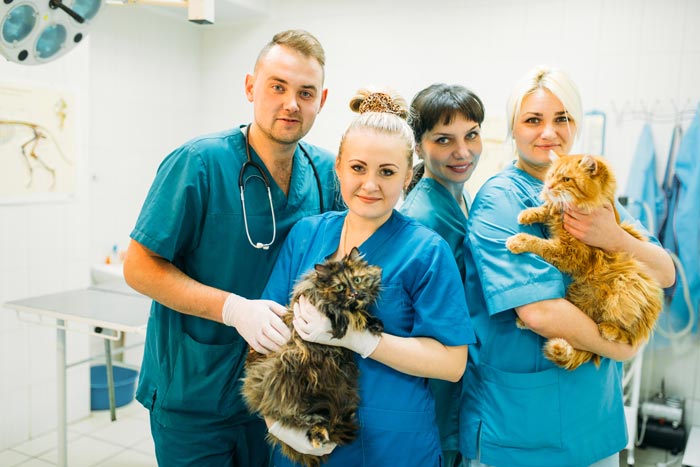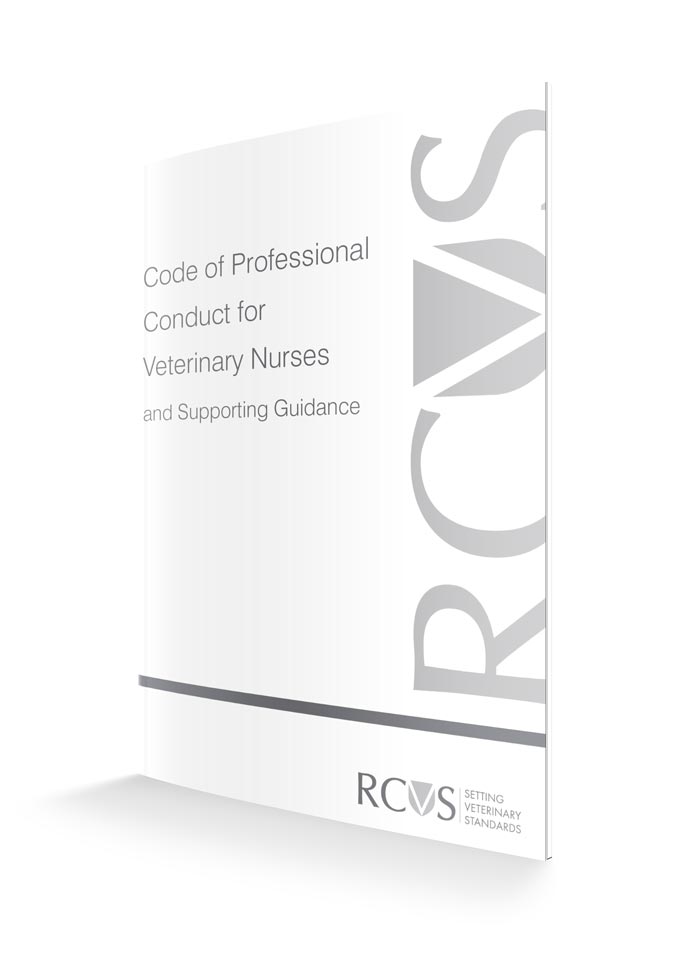While highly sought after by intelligence agencies, code breakers in the veterinary world aren’t always as sought after.
This is great, as the code of conduct is not there to be broken – it’s an important written guidance and protects the title “veterinary nurse”. Under the section “Veterinary nurses and the profession”, point 3.5 states:
“3.5 Veterinary nurses must not: hold out themselves or others as having expertise they cannot substantiate; hold out others as specialists or advanced practitioners unless appropriately listed with the RCVS; or, hold out others as veterinary nurses unless appropriately registered with the RCVS.”
This means, when referring to ourselves or colleagues, we need to use the correct terms. The code of conduct states we should not be referring to those not on the register as a veterinary nurse. The period of referring to anyone who is not a vet, but caring for animals as a “nurse” is over.
Despite this, and my previous popular blog on the matter, people with misleading and incorrect information on social media profiles and practice websites – and, more worryingly, job adverts – still exist.
Using the incorrect title when job hunting – either permanent or locum – has huge implications. Successful cases of fraud have already occurred against individuals working as RVNs when not on the register. These involve possible prison sentences, financial fines and a criminal record.
So please make sure, if you’re a vet nurse employer, you aren’t encouraging use of incorrect titles with your job adverts.
Take pride
Many vets will employ lay staff with titles such as “care assistant”, and many different options to describe a role exist, instead of inaccurately using nursing titles. Working in a veterinary practice is a sought-after position – take pride in having that position.

If you are a student then use SVN – it’s a highly coveted course to say you are on and the title carries legal responsibilities, too. Take pride in being an SVN. If you are an RVN then shout about it! But only once you are on – and stay on – the register.
If you’re an employer, make sure your staff stay within the code of conduct and, when advertising a role, please check the advert you use.
It may have worked last time you used it, and was accurate for what you needed then, but isn’t using the phrase “qualified or experienced nurse” a little confusing?
Does it lead people to think you’re not sure what you need, and maybe a lay person could do some Schedule 3 tasks?
It all starts to get a little hazy, so let’s look at the title and postnominal options.
An RVN is an RVN
If you’ve passed the exams, paid your fees to be on the register, kept up to date with CPD and the RCVS is happy with that, you’re an RVN.
Let’s use the title “veterinary nurse” and be proud. If you want to employ a vet nurse, say so – “experienced or qualified” isn’t an option.
Can I be a VN?
The postnominal VN is no longer in use. If you have previously been an RVN, you can put that on your CV and make it clear you are no longer on the register.
Using VN postnominals creates confusion as people assume you mean RVN and, therefore, may use this title and describe you as a veterinary nurse. This may lead people to put you in situations you shouldn’t be in – even if that’s not what you intended.
PCA, VCA, ANA?
While the naming of lay staff who help with animal care is outwith the remit of the RCVS, care should still be taken when assigning titles to these staff.
A Level 2 Veterinary Care Assistant course exists, so I would urge you only title your staff as “VCA” if they have that qualification. I would say the same applies for those who have the Animal Nursing Assistant (ANA) qualification; which, although an older course, is still relevant for the job role.
The only issue with job hunting for the patient care assistant (PCA) title is numerous roles in human care exist with this title – would your job advert be lost among those roles?
I’m hoping the days of “kennel maids” are over, but kennel assistant or ward assistant may accurately describe the role your practice needs.
What can we all do?
You can make sure you use the correct title for yourself, and check your employer has the correct details on its website or any data it has for you. Be the industry’s eyes and ears on social media, websites and job adverts.
Yes, that goes for vets too. All too often I hear about vets stuck with wanting to employ nurses, but can’t find them. One of the reasons vet nurses leave the profession is a lack of career progression. The issue with this lies partially with clinical vet nurse employers, which are mainly vets.
Employing the right people for the right role and giving them the correct title is key to this, and could prevent you, as a vet, breaking the code.
Before employers start thinking they haven’t the staffing or cases to provide “career progression”, it’s not that hard a proposition to achieve. Vet nurses are realistic and don’t expect a first opinion practice to suddenly have intensive cases to care for on an ongoing basis.

Dos and don’ts
What VNs do want is to:
- have their nursing skills valued
- have their nursing skills used
- work with vets on cases
- be allowed to advance their skills and knowledge, and apply this to the practice workload
What VNs do NOT want is to:
- spend the majority of time on admin or reception if the role advertised was for a clinical VN
- be working in a team where code breakers work
- be denied opportunities to improve their skills and patient welfare
This list of desires is possible in all vet practices – employers just need to consider what they can offer an RVN.
We might consider the RVN role usually covers clinical work (including clinical cleaning), client facing (reception), administrative tasks and practice maintenance (cleaning non-clinical areas).
The RCVS professional conduct department is always happy to advise you if you aren’t sure of anything.
For employers, it can advise on Schedule 3, nursing tasks and appropriate titles to use, while for individuals who have concerns, if you wish to discuss an issue, take a screen shot if it’s a website or job adverts and email profcon@rcvs.org.uk
While the RCVS cannot regulate lay staff, it can advise you on the best course of action. Be polite, always bear in mind it might be a genuine error, present yourself as a professional to be listened to and don’t be the one to break the code.

Leave a Reply